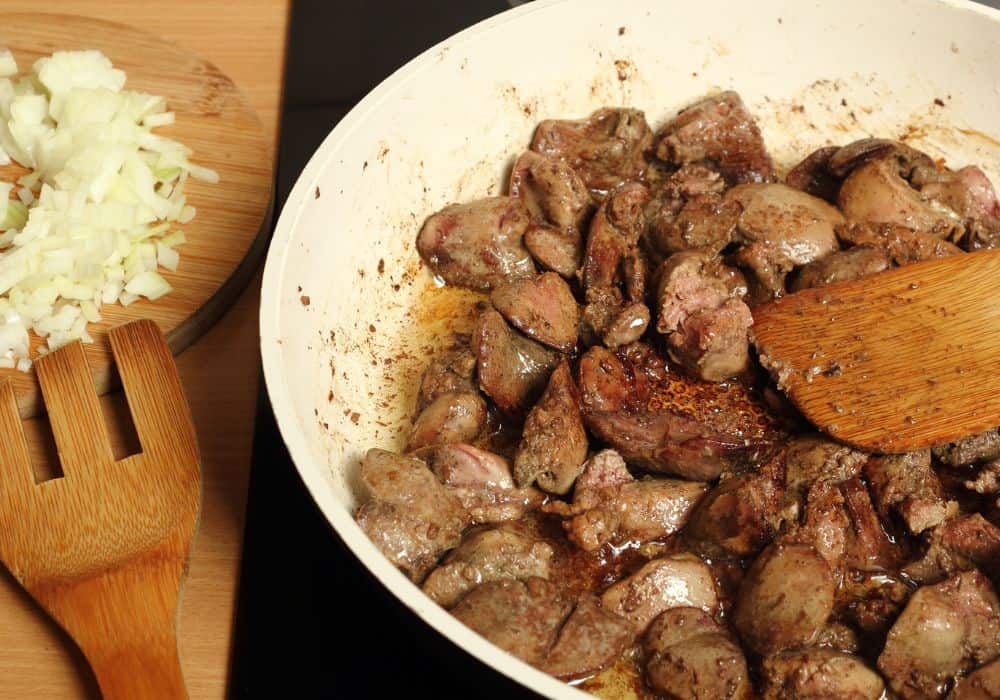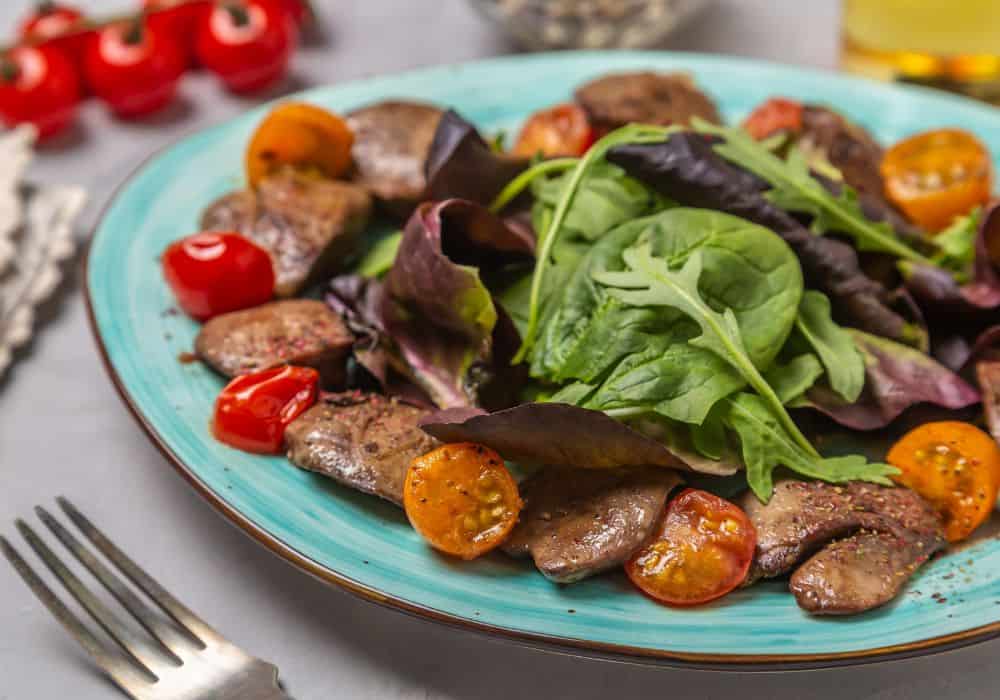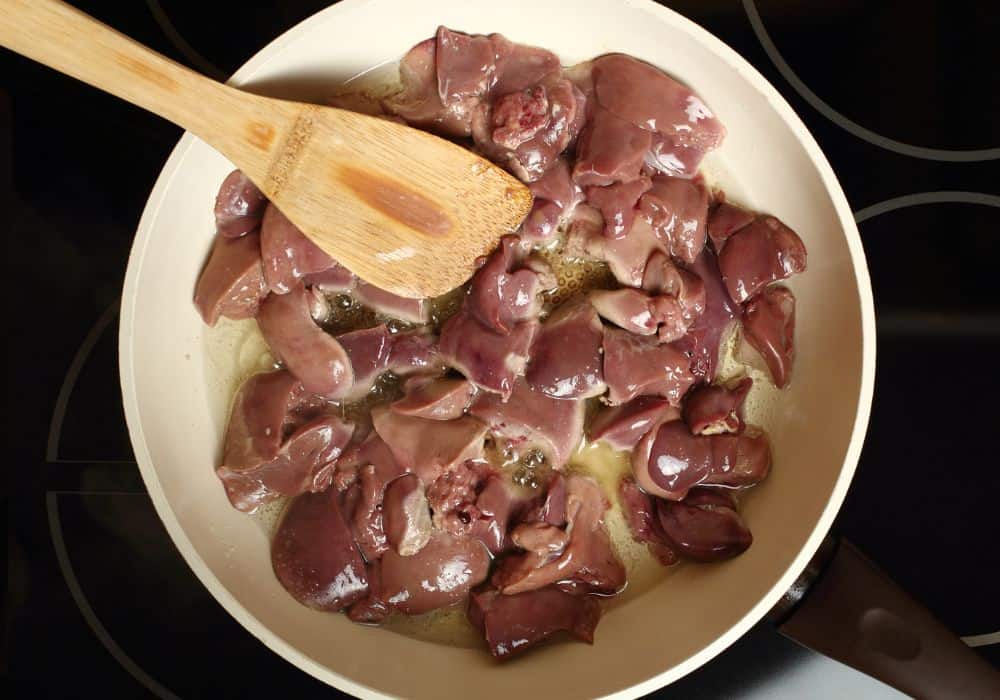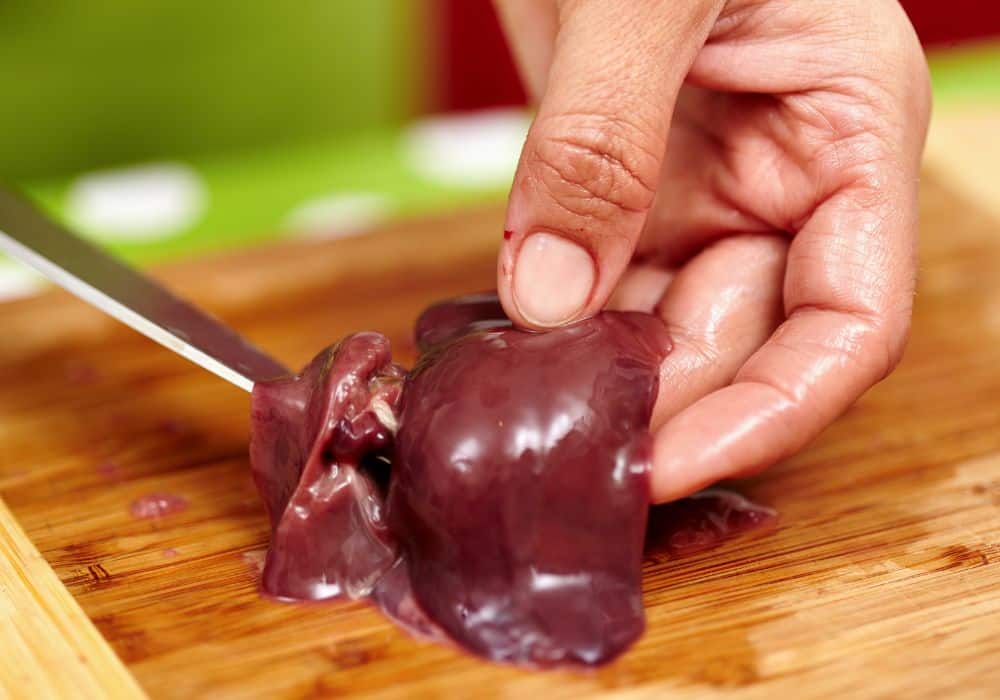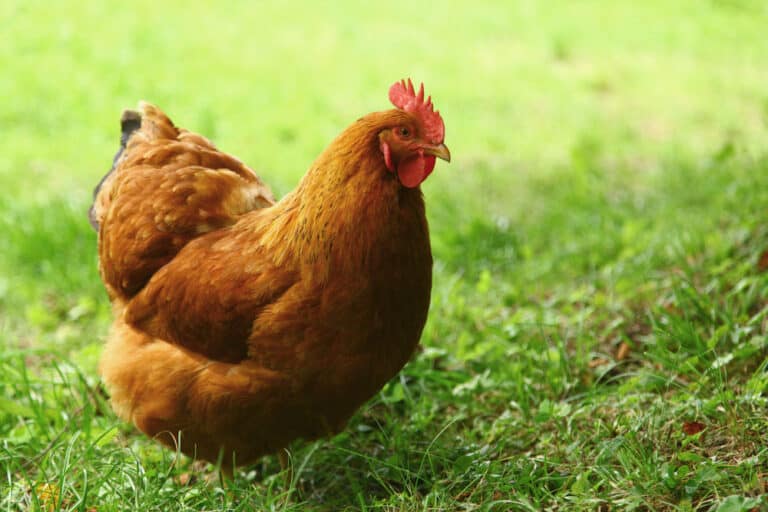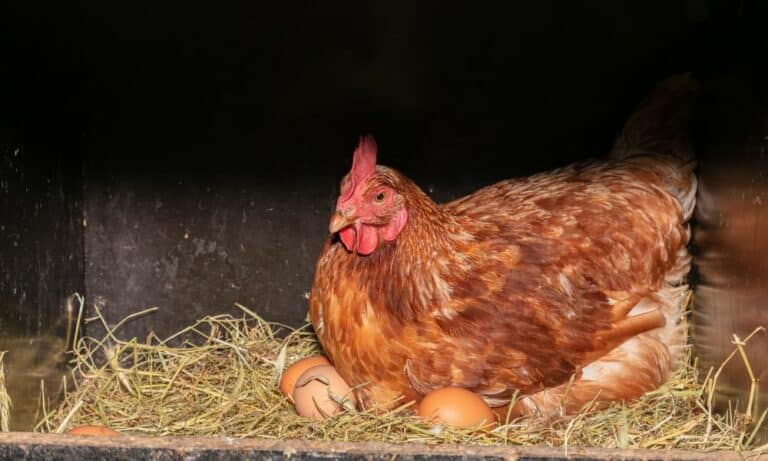Are you interested in chicken liver? Or perhaps you’ve heard it’s highly nutritious and want to know the facts. Either way, you’ve come to the right place! This wonderful ingredient is great for many reasons and is often seen as a delicacy around the world.
Let’s take a closer look at it here in your complete guide to chicken liver nutrition. Get to learn everything about it such as its nutritional benefits, how to incorporate it into your diet, and more! But before anything else, what is chicken liver anyway?
What is Chicken Liver?
If you’re not into organ meat or unfamiliar with it, you’re probably raising your brow right now. But don’t worry because it’s safe to eat, and it’s also a delicacy in some parts of the world.
It is what it is, the liver of a healthy chicken, and is classified as offal or organ meat. Compared to other parts of chickens like the thighs or breasts, chicken liver has different nutritional levels, and these are often higher too.
Additionally, this type of liver is also high in specific nutrients, making it an ideal source of supplements. If you’re anemic, eating it every day will be helpful. Let’s take a closer look at the facts.
Chicken Liver Nutrition Information
As we mentioned earlier, chicken liver is known for being rich in nutrients. To give you an idea, it is high in protein and has a zero-carb macronutrient profile.
That means it’s perfect for keto diets and other similar diets. In 100g of chicken liver, you will get 116 calories, 24.3g of protein, and 4.8g of total fat.
Chicken liver is also rich in vitamins A and C. So if you intake 100g, you will get 11,077 IU of Vitamin A, 17.9g of Vitamin C, and 0.7mg of Vitamin E.
With just a small amount, you can get plenty of vitamins and minerals from chicken liver. If you can, it’s best to incorporate this ingredient into your meals to get the required amount of essential nutrients into your system.
The Health Benefits You Can Enjoy from Chicken Liver
Even if the chicken liver has large amounts of cholesterol, it’s still a great ingredient to use for your meals. Why? Because it’s packed with high amounts of vitamins and minerals for your body. Here, we’ve put together all the health benefits you can get when you add chicken liver to your diet.
1. Packed with Protein
You can get your dose of protein by eating chicken liver since it’s also considered a complete type of protein. Consuming 100g of it will give you around 24.3g of protein, plus it’s packed with all the amino acids needed in your diet.
Amino acids are extremely important since they work as the building blocks of our bodies. That means these help cell growth and repair, as well as muscle building and the production of hormones.
2. Source of Selenium
You can also get a good dose of selenium when eating 100g of liver. Basically, this is a mineral with antioxidant properties, making it very important for the proper functioning of our thyroid glands.
Research also suggests that taking the right amounts of selenium can improve your DNA repair to potentially decrease the risk of cancer. What’s more, it also helps reduce the chances of sicknesses linked to damaged DNA.
3. It has Loads of B Vitamins
To produce enough energy for the body, you’ll need adequate doses of Vitamin B in your system. It’s another important vitamin since it derives energy from the nutrients in the food we eat.
Also, it’s vital for making our cells function right, and Vitamin B plays a crucial part in DNA synthesis and cell repair.
When it comes to chicken liver, has massive amounts of Vitamin B. If you eat 100g of it, you’ll get almost 290% of the daily recommended minimum amount.
4. Great Source of None Plant-Based Vitamin C
If you think about it, we usually get our source of Vitamin C from oranges, lemons, etc. However, we can get our daily dose from other places that aren’t fruit or plant-based, and chicken liver is one way to go.
Generally, organ meat is an excellent source of this essential vitamin. Chicken liver has about 47% of the RDA per 100g. So if you eat a 200g serving of liver, you’ll more or less get a full RDA for Vitamin C.
5. Packed with Vitamins and Low in Calories
It’s always great to have something low in calories but can still provide adequate amounts of nutrition that your body needs. Chicken liver is surprisingly high in protein while low in calories, making it the best option for improving your body composition.
6. Iron and Zinc for your Daily Needs
Eating chicken liver gives you a healthy dose of zinc and iron. These are essential to our bodies since iron lets you use oxygen adequately while also helping create new red blood cells. It also functions for cell division and helps keep the immune system healthy.
When our body lacks iron, we will experience fatigue, get a weakened immune system, and have decreased oxygen. If you’re male, you’re required to get 8mg of iron every day, and if you’re female, you’ll need 18mg instead. A piece of chicken liver will give the body 5.12mg of iron.
For Zinc, it helps heal wounds, improves the immune system functions, as well as cell division. For this mineral, 11mg of it is necessary for males each day, while females require 8mg. Eating one piece of chicken liver will give you a good 1.75mg of zinc.
7. Full of Vitamin A
Another important vitamin is A, and thankfully chicken liver has plenty of that too! Vitamin A is great for maintaining healthy vision and it can help prevent declining eyesight as you age. However, there are plenty of other benefits to Vitamin A.
It will support a healthy immune system and can aid in ensuring your heart and lungs work properly, along with other organs. Finally, it has also been linked to improved skin, better bone health, and a reduced risk of cancer.
Downsides of Eating Chicken Liver
As we’ve seen, there are many good reasons to eat chicken liver, but sadly it’s not all good news! As with everything, eating too much of anything will be a bad thing and there are a few things you need to consider with chicken liver.
1. Cholesterol
The main thing to consider is the high cholesterol content. Cholesterol is a waxy substance that can coat the walls of your arteries. The more cholesterol you have, the greater chance you have of complications such as heart attack or stroke.
That may sound scary, but there’s no need to be afraid. Many foods contain cholesterol and we most likely eat it in some form or other every day. Eating cholesterol is fine, you just don’t want too much of it.
Also, cholesterol is heavily affected by non-diet factors. Those who aren’t overweight, and exercise often will naturally have low cholesterol. In addition, smoking and drinking alcohol can negatively affect your cholesterol levels.
If you’re including the liver as part of a healthy diet and you’re generally in good shape, then you don’t need to worry.
2. Toxins
The liver processes toxins, so will you be ingesting these toxins if you eat them? The answer is no. Crucially, the liver only processes toxins and doesn’t store them. You’ll never get ill from eating a chicken liver.
3. Vitamin A Toxicity
Many are also concerned about Vitamin A toxicity. As we’ve said already, too much of anything is a bad thing! Taking too much Vitamin A in one go can overload your own liver and cause the likes of vomiting, blurred vision, and vertigo.
The long-term effects of too much Vitamin A can include liver damage, bone thinning, pain in the joints, and even birth defects. But should you be concerned? No. You won’t be eating enough chicken liver for it ever to be a problem.
In 140 grams of fried chicken liver, you are likely to intake just under 4,000 micrograms of Vitamin A. A large single dose that causes the effects we mentioned above would need to be around 200,000 micrograms.
If we do a bit of quick math, that means you’d need to eat 50 pieces of chicken liver to get ill! To prevent those long-term effects, it’s recommended that you don’t exceed 10,000 micrograms per day.
Over a week, that would mean you’d need to eat 17.5 pieces of chicken liver to be in the danger zone. The bottom line is that if you’re having chicken liver two or three times a week, you have absolutely nothing to worry about.
Conclusion
While you should always eat everything in moderation, chicken liver can be an awesome source of vitamins and minerals. And unless you’re eating it multiple times a day, you don’t have to worry about any downsides. So what are you waiting for, start eating some chicken liver today!

